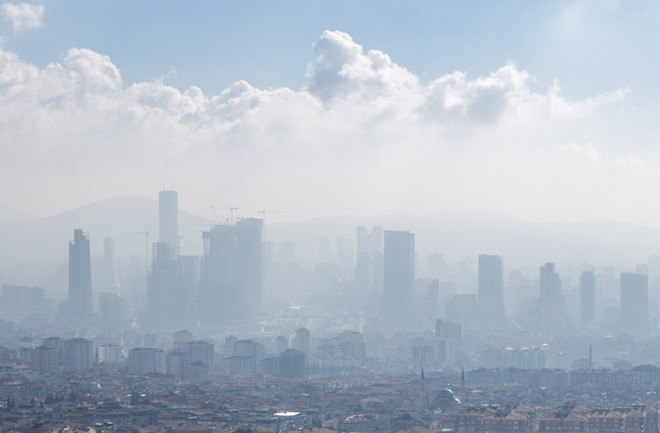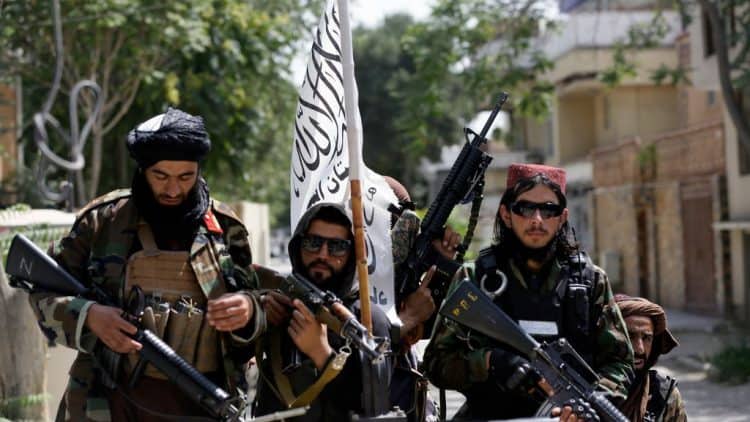
Events are unfolding at a quickening pace. Facing an alarming escalation in tensions around the world, we are looking to our most respected and renowned thought leaders for an honest assessment of both U.S. foreign and military policy to offer their most current thoughts and insights. We know they have some ideas for improving the prospects for peace.
Noam Chomsky needs no introduction. He has devoted his whole life to calling out the abuses of power and the excesses of U.S. empire. At 92, he still is actively engaged in the national conversation. We are of course honored that he took the time to talk to us and share his views.
The questions here are not philosophical or abstract. They focus on the realities of the international power struggle unfolding in real time. They directly address the role of the U.S. in the escalating tensions and its capacity to reduce them. We also probe the role of everyday citizens in affecting the relationship the U.S. now has and will have with the rest of the world community.
Here is what Noam Chomsky had to say.
The Bulletin of Atomic Scientists has recently put the hands of the doomsday clock to 100 seconds before midnight. Midnight means all out war, probably nuclear holocaust. This is the closest it has every been. Do you agree with this dire assessment?
A fair assessment, unfortunately.The BAS analysts cited three major increasing threats: nuclear war, environmental destruction, and what some have called an “infodemic,” the sharp decline in rational discourse — the only hope for addressing the existential crises.
Every year that Trump was in office, the minute hand moved closer to midnight. Two year ago the analysts abandoned minutes and turned to seconds. Trump steadily escalated all three threats. It’s worth reflecting on how close the world came to indescribable catastrophe last November. Another 4 years of Trump’s race to the abyss might have had incalculable consequences. His worshippers of course don’t see it this way, but, remarkably, the same is true of segments of the left. In fact, liberal litanies of his abuses also largely skirt his major crimes. Worth consideration when we recognize that he or some clone might soon regain the levers of power. Also worth consideration are the warnings by thousands of scientists that we are approaching irreversible tipping points in environmental destruction. We can read all about it in Aljazeera.
The U.S. always portrays itself as the greatest force on the planet for peace, justice, human rights, racial equality, etc. Polls tell us that most other nations actually regard the U.S. as the greatest threat to stability. What in your view is the truth here?
Even during the Obama years international polls showed that world opinion regarded the US as the greatest threat to world peace, no other country even close. Americans were protected from the news, though one could learn about it from foreign media and dissident sources. Sometimes illustrations are reported. Thus there has been some mention of the recent UN vote condemning the savage Cuba sanctions, virtually a blockade: 180-2 (US-Israel). The NY Times dismissed it as a chance for critics of the US to blow off steam. That’s quite normal. When there are reports of how the world is out of step, the usual framework is curiosity about the psychic maladies that lead to such pathological failure to recognize our nobility.
There’s nothing new about that stance. It’s typical of imperial cultures. Even such an outstanding figure as John Stuart Mill wondered about the world’s failure to comprehend that Britain was an angelic power, sacrificing itself for the benefit of the world – at a moment when Britain was carrying out some of its most horrifying crimes, as he knew very well.
Here’s a chicken-or-egg question: The U.S. accuses both Russia and China of rapidly expanding their military capabilities, claiming its own posturing and increase in weaponry is a response to its hostile adversaries, Russia and China. Both Russia and China claim they are merely responding to intimidation and military threats posed by the U.S. What’s your view? Do Russia and China have imperial ambitions or are they just trying to defend themselves against what they see as an increasingly aggressive U.S. military?
Some background facts may be useful. According to the major international monitor, SIPRI, “The growth in total [military] spending in 2020 was largely influenced by expenditure patterns in the United States and China. The USA increased its military spending for the third straight year to reach $778 billion in 2020,” as compared with China’s increase to $252 billion (far less per capita of course). In fourth place, below India, is Russia: $61.7 billion.
The US is alone in facing no credible security threats, apart from alleged threats at the borders of adversaries, who are ringed with US nuclear-armed missiles in some of the 800 US military bases around the world (China has one, Djibouti). There have been international efforts to prevent militarization of outer space, a major threat to survival. They have been initiated primarily by China and Russia, blocked for many years by Washington.
The number of spy missions, nuclear-armed bomber flights, and war games near Russia’s borders have vastly increased over the past year. Same with China. Is all of this just business-as-usual geopolitical posturing? Or does it represent a dangerous escalation and a new ominous direction in U.S. strategic positioning? What is the justification for what Russia and China see as provocations and aggressiveness, if not actual preparation for a war?
It’s extremely dangerous.Strategic planning has been redesigned to focus on war with China and Russia. Provocative actions have been taken on their borders, already bristling with US offensive weapons. China is violating international law in the South China Sea – though the US, the only maritime power not to have ratified the UN Law of the Sea, is not in a strong position to object. The right response to China’s violations is not a dangerous show of force but diplomacy and negotiations, led by the regional states most directly involved. The major threat is over Taiwan. Again thoughtful diplomacy, not provocative actions, can avert would could be disastrous.
In a democracy, at least in theory citizens have a say in all matters of public policy. Yet, in the end none of the recent military campaigns and undeclared wars seem to achieve much popular favor or support. What is and what should be the role of everyday citizens in determining the foreign policy and military priorities of the country? Or are such matters better left to the “experts”?
According to the Constitution, Article I, Congress has the sole right to declare war.But that provision has long been dispatched to the ashcan, along with other inconvenient provisions of the document that we are taught to revere.
In a functioning democracy, citizens should have the primary role in affairs of state. Not here. And they should be informed citizens. Not here. World War I is a classic example. In 1916, Wilson won on a platform of “peace without victory.” He then launched an impressive propaganda campaign to inflame a pacifist population with bitter hatred of all things German, fortified with fabrications about Hun atrocities concocted by the British “Ministry of Information”; Orwellism was alive and well long before Orwell. It was highly successful. It wasn’t the first such occasion, nor the last. State propaganda remains highly effective, everywhere we turn, reinforced by the loyal media and intellectual class.
A striking example, with considerable import, was just released a few hours before I sat down to write: “more Americans think Iran possesses nuclear weapons than think Israel does. While Israel has been known to possess nuclear weapons for decades (without officially acknowledging it) and Iran is not known to have ever possessed any, the American public perception presumes a different reality: 60.5%, including 70.6% of Republicans and 52.6% of Democrats, say Iran possesses nuclear weapons — compared to 51.7% who say Israel does, including 51.7% of Republicans and 51.9% of Democrats.”.
The achievements of unremitting propaganda can be quite stunning.
Again, the media help in a variety of ways. To take one highly relevant case, the NY Times editors recently joined virtually the entire world, including Iran, in calling for a nuclear weapons-free zone in the Middle East. That would end the alleged threat of Iranian nuclear weapons and radically reduce severe and very dangerous regional tensions. One small matter was omitted in the editors’ proposal: Israel, the one regional power with nuclear weapons, in fact a formidable supply. Also omitted was why this critically important proposal is not implemented: the US blocks it, to ensure that Israel’s massive armaments will not be inspected. In fact, the US government refuses to recognize officially that Israel has nuclear weapons, though it is not in doubt. If it were to do so, US law might become applicable, arguably banning all aid to Israel.
Best for the rabble not to know that their lives are being threatened in order to protect Israel’s malfeasance and US participation in it.
Related to that, the citizenry and most of Congress are kept in the dark with respect to special missions, proxy funding, CIA operations, and swaths of unknown unknowns constituting psyops, cyber ops, and regime change ops, all done in our name as U.S. citizens. The funds to support this sprawling “dark world” of sabotage and terror being inflicted on the rest of the planet, is also a secret. Now there’s pervasive spying on U.S. citizens right here at home. What place does any of this have in “the land of the free”? Does this mean government of the people, by the people, for the people is just a sham?
If we let it be a scam.In the opening passage of one of the first major modern works of political science, a wise man – David Hume – pointed out that “power is in the hands of the governed.” If they choose to exercise it. And if they go on to take the reins of government into their own hands in a “cooperative commonwealth,” the aspiration of American workers and farmers in the late 19th century. Crushed by state-business violence.
We are grateful to Noam Chomsky for his thought-provoking views. The interview was arranged by John Rachel, Director of the Peace Dividend Project. This initiative embraces a powerful, unprecedented, end-to-end strategy for challenging the tyranny of neocon warmongers in Washington DC, ending the endless wars, and reversing the self-destructive foreign policy and military paradigm which now poisons U.S. relations with the rest of the world. Professor Chomsky has also agreed to be interviewed for the full-length Peace Dividend documentary film, a devastating indictment of the corruption and fraud built into our excessive military budgets and imperial overreach. This movie will inform, unite and empower everyday citizens to have a voice in determining the future they want for themselves and their children.















